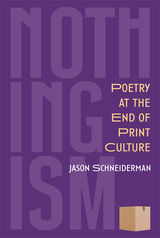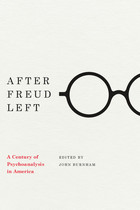
From August 29 to September 21, 1909, Sigmund Freud visited the United States, where he gave five lectures at Clark University in Worcester, Massachusetts. This volume brings together a stunning gallery of leading historians of psychoanalysis and of American culture to consider the broad history of psychoanalysis in America and to reflect on what has happened to Freud’s legacy in the United States in the century since his visit.
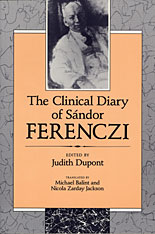

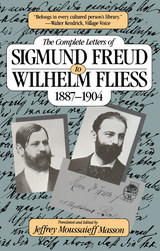
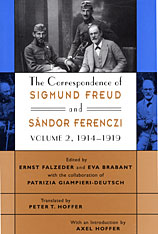
Volume I of the three-volume Freud-Ferenczi correspondence closes with Freud's letter from Vienna, dated June 28, 1914, to his younger colleague in Budapest: "I am writing under the impression of the surprising murder in Sarajevo, the consequences of which cannot be foreseen!' "Now," he continues in a more familiar vein, "to our affairs!" The nation-shattering events of World War I form a somber canvas for "our affairs" and the exchanges of the two correspondents in volume 2 (July 1914 through December 1919). Uncertainty pervades these letters: Will Ferenczi be called up? Will food and fuel-and cigar-shortages continue? Will Freud's three enlisted sons and son-in-law come through the war intact? And will Freud's "problem-child," psychoanalysis, survive?At the same time, a more intimate drama is unfolding: Freud's three-part analysis of Ferenczi in 1914 and 1916 ("finished but not terminated"); Ferenczi's concomitant turmoil over whether to marry his mistress, Gizella Pálos, or her daughter, Elma; and the refraction of all these relationships in constantly shifting triads and dyads. In these, as in other matters, both men display characteristic contradictions and inconsistencies, Freud restrained, Ferenczi more effusive and revealing. Freud, for example, unswervingly favors Ferenczi's marriage to Gizella and views his indecision as "resistance"; yet several years later, commenting on Otto Rank's wife, Freud remarks, "One certainly can't judge in these matters...on behalf of another." Ferenczi, for his part, reacts to the paternal authority of the "father of psychoanalysis" as an alternately obedient and rebellious son.
The letters vividly record the use--and misuse--of analysis and self-analysis and the close interweaving of personal and professional matters in the early history of psychoanalysis. Ferenczi's eventual disagreement with Freud about "head and heart," objective detachment versus subjective involvement and engagement in the analytic relationship--an issue that would emerge more clearly in the ensuing years--is hinted at here. As the decade and the volume end, the correspondents continue their literary conversation, unaware of the painful and heartrending events ahead.

The young psychiatrist from Budapest had studied medicine in Vienna, he had read The Interpretation of Dreams, and now he was about to meet its author. Seventeen years Sigmund Freud's junior, Sándor Ferenczi (1873-1933) sent off a note anticipating the pleasure of the older man's acquaintance--thus beginning a correspondence that would flourish over the next twenty-five years, and that today provides a living record of some of the most important insights and developments of psychoanalysis, worked out through the course of a deep and profoundly complicated friendship.
This volume opens in January of 1908 and closes on the eve of World War I. Letter by letter, a "fellowship of life, thoughts, and interests" as Freud came to describe it, unfolds here as a passionate exchange of ideas and theories. Ferenczi's contribution to psychoanalysis was, Freud said, "pure gold," and many of the younger man's notions and concepts, proposed in these letters, later made their way into Freud's works on homosexuality, paranoia, trauma, transference, and other topics. To the two men's mutual scientific interests others were soon added, and their correspondence expanded in richness and complexity as Ferenczi attempted to work out his personal and professional conflicts under the direction of his devoted and sometimes critical elder colleague.
Here is Ferenczi's love for Elma, his analysand and the daughter of his mistress, his anguish over his matrimonial intentions, his soliciting of Freud's help in sorting out this emotional tangle--a situation that would eventually lead to Ferenczi's own analysis with Freud. Here is Freud's unraveling relationship with Jung, documented through a heated discussion of the events leading up to the final break. Amid these weighty matters of heart and mind, among the psychoanalytic theorizing and playful speculation, we also find the lighter stuff of life, the talk of travel plans and antiquities, gossip about friends and family. Unparalleled in their wealth of personal and scientific detail, these letters give us an intimate picture of psychoanalytic theory being made in the midst of an extraordinary friendship.
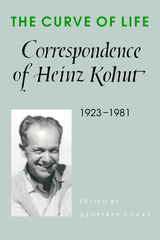
The Curve of Life reveals Kohut's private and public life through a unique collection of lively and thoughtful correspondence with colleagues, public figures, family, and close friends. Over 300 never-before-published letters, drawn from Kohut's private files and from colleagues, cover Kohut's life from his native Austria in the 1930s until his death in 1981. Because many of his letters were so substantive, this rich collection clarifies Kohut's landmark published works. In letters to such diverse personalities as Anna Freud and Bruno Walter, Kohut meditated on some of the most intriguing psychoanalytic questions of the day—the nature of psychological cure, the relationship between doctor and patient, and the role of the Oedipus complex in psychoanalysis. The correspondence also reveals Kohut's lively interest in literature, music, history, and culture, as well as his deep and often contentious involvement in the politics of the psychoanalytic movement.
Kohut discussed his theories in letters to August Aichhorn, Heinz Hartmann, the Surgeon General, and even Jacqueline Kennedy, and the responses, some published here for the first time, prompted him to explore his ideas from a variety of perspectives. A letter from Anna Freud provoked Kohut to respond this way:
"What you had to say gave me great pleasure, and your approval was a welcome support amidst the inescapable insecurities under pressure to which we are all exposed. Strangely enough, it was not the discussion of scientific contributions and other statements that I had sent to you but the very last, parting sentence of your letter which gave me the most food for thought. You sent me your best wishes for the presidency of the American Psychoanalytic Association, and expressed the hope that '...this office permits opportunity for some revolutionary moves.'"
The Curve of Life illuminates the evolution of Kohut's theory of the psychology of the self, and provides a rare glimpse into the institutional and intellectual history of psychoanalysis in the last half of this century. These letters will fascinate not only scholars in psychoanalysis, but also those in the humanities, social sciences, and even theology, as well as general readers curious about the private thoughts of a towering figure in intellectual life.
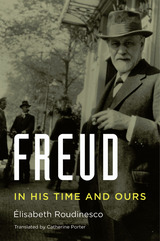
Élisabeth Roudinesco offers a bold and modern reinterpretation of the iconic founder of psychoanalysis. Based on new archival sources, this is Freud’s biography for the twenty-first century—a critical appraisal, at once sympathetic and impartial, of a genius greatly admired and yet greatly misunderstood in his own time and in ours.
Roudinesco traces Freud’s life from his upbringing as the eldest of eight siblings in a prosperous Jewish-Austrian household to his final days in London, a refugee of the Nazis’ annexation of his homeland. She recreates the milieu of fin de siècle Vienna in the waning days of the Habsburg Empire—an era of extraordinary artistic innovation, given luster by such luminaries as Gustav Klimt, Stefan Zweig, and Gustav Mahler. In the midst of it all, at the modest residence of Berggasse 19, Freud pursued his clinical investigation of nervous disorders, blazing a path into the unplumbed recesses of human consciousness and desire.
Yet this revolutionary who was overthrowing cherished notions of human rationality and sexuality was, in his politics and personal habits, in many ways conservative, Roudinesco shows. In his chauvinistic attitudes toward women, and in his stubborn refusal to acknowledge the growing threat of Hitler until it was nearly too late, even the analytically-minded Freud had his blind spots. Alert to his intellectual complexity—the numerous tensions in his character and thought that remained unresolved—Roudinesco ultimately views Freud less as a scientific thinker than as the master interpreter of civilization and culture.

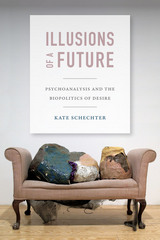
In the process, Schechter shows how deeply imbricated the analyst-patient relationship is in this effort. Since the mid-twentieth century, the "real" relationship between analyst and patient is no longer the unremarked background of analysis but its very site. Psychoanalysts seek to validate the centrality of this relationship with theory and, through codified "standards," to claim it as a privileged technique. It has become the means by which psychoanalysts, in seeking to protect their disciplinary autonomy, have unwittingly bound themselves to a neoliberal discourse of regulation.


James Jackson Putnam was an established sixty-three-year-old Boston physician and Harvard professor of neurology when he and William James traveled to Clark University to hear Sigmund Freud's lectures on psychoanalysis. Putnam had become interested in psychoanalytic theory three years earlier in 1906; and, in 1908, his interest had been renewed when he met Freud's first English-speaking follower, twenty-eight-year-old Ernest Jones. It still surprised and even disturbed his friends, however, when Putnam became Freud's first American convert as well as a founder and first president of the American Psychoanalytic Association in 1911, and of the Boston Society for Psychoanalysis in 1914.
Of the 172 letters in this volume 163 are published here for the first time. All of the letters present new perspectives on the origins and early development of psychoanalysis in the United States. They provide the first documentary account of the founding of the American psychoanalytic organizations and the battles that surrounded the first public presentations of the psychoanalytic cause in Europe and America. They dramatize the extent to which Freud and Jones used Putnam as a confidant and how important Putnam's Yankee fairness, objectivity, and personal integrity were to the movement.
It is intriguing to discover how these men, long before formal training centers were established, educated each other by mail and learned by letters how to handle psychoanalytic problems never recognized or encountered before. Theory was debated as well, and the 89 letters between Putnam and Freud indicate how Freud's increasingly disillusioned stoicism clashed with Putnam's New England optimism and formed the basis for a significant dialogue on the nature of man, ethics, and the psychoanalytic mission. The letters suggest that Putnam encouraged Freud's interest in the analysis of conscience and of religion that Wilhelm Wundt and Carl Jung had earlier awakened. Nathan G. Hale, Jr., in an introductory essay, provides the background and the explanation for the surprising role Putnam played in what he came to call the "cause." Marian C. Putnam, who made the unpublished letters available, has written a warm recollection of her father. Judith Bernays Heller, Freud's niece, has translated the German texts, which are also published in the original German.

Jelliffe's colorful and versatile career led him from botany and neurology (he was coauthor of a neurology text that remained standard for some forty years) to psychiatry, psychoanalysis (of which he was a founding father in the United States), and psychosomatic medicine (in which he also pioneered). Jelliffe also made outstanding contributions to medical journalism. With William Alanson White he founded the Psychoanalytic Review, and his work as editor of the Journal of Nervous and Mental Disease from 1902 to 1944 may have set a record for editorial longevity. Jelliffe was a charismatic speaker and teacher who in all his roles induced physicians and other thinkers to explore new ideas and ways of thinking.
Jelliffe's correspondence with Jung and Freud illuminates the personal and professional lives of the three men. The letters help to clarify concepts in both the Jungian and Freudian schools. The shifting emphasis of Jelliffe's relationships with the two masters of psychoanalysis—first when the two were colleagues, then for the greater span of time when they were rivals and adversaries—is revealing of Jenlliffe's own flexible views.
Jelliffe, furthermore, provides insights into the history of medicine and medical institutions and customs through Jelliffe's frank accounts of the developing medical profession in America. Jelliffe describes, for example, what it was like for a young M.D. to set up an economically viable practice in the 1890s. In addition, Burnham explores the problem of measuring the influence of a man like Jelliffe upon the history of ideas and institutions.

When Sigmund Freud was nearly seventy and reflecting upon his life, he noted in Selbstdarstellung that during his youth he was consumed with a passion for knowledge that had more to do with human relationships than with natural objects. This collection of nearly eighty letters, written by Freud to his boyhood chum Eduard Silberstein, attests to that earlier, more whimsical life and to the existence of a deeply sensitive, observant youth.
The letters were composed over a period of ten years during which Freud and Silberstein attended secondary school and later the university in Vienna. They are the earliest primary source available on Freud's childhood and the only surviving documentation of his adolescence. Written in a witty, playful, and sometimes sanctimonious style, the letters bring to light a panoply of public and private interests: Freud's attitudes toward Bismarck and social democracy, his philosophical studies and professional leanings, as well as the innocent assault of first love, his earliest sexual stirrings, and his musings on the differences between men and women. What emerges in these letters is the special nature of this adolescent friendship, which was characterized by its own private mythology, code, and membership in an exclusive secret society invented by the two young correspondents. These letters sketch a unique portrait of Freud's youth. They will be a rich resource for scholars and all those interested in Sigmund Freud's formative years.


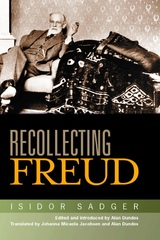
As a student, Sadger attended Freud's lectures from 1895 through 1904. Two years later Freud nominated Sadger to his Wednesday Psychological Society (later called the Viennese Psychoanalytic Society). Sadger, however, was not part of Freud's inner circle, but more a participant observer of the early years of the psychoanalytic movement and of Freud as teacher, therapist, and clinician.
Sadger was considered one of the most devoted followers of Freud and hoped to become one of Freud's "favorite sons." At the First Psychoanalytic Congress held in Salzburg in 1908, Sadger was chosen to be one of the principal speakers along with Freud, Jones, Alder, Jung, Prince, Rifkin, Abraham, and Stekel, an honor that bespeaks Sadger's early role in the movement. But Freud and many of his disciples were also openly critical of Sadger's work, calling it at various times overly simplistic, unimaginative, reductionist, orthodox, and rigid.
In 1930 Sadger published his memoir, Sigmund Freud: Persönliche Erinnerungen. With the rise of Nazism and World War II, the book became lost to the world of psychoanalytic history. Recently, Alan Dundes learned of its existence and mounted a search that led him around the world to one of the few extant copies—in a research library in Japan. The result of his fascinating quest is Recollecting Freud, a long-lost personal account that provides invaluable insights into Freud and his social, cultural, and intellectual context.
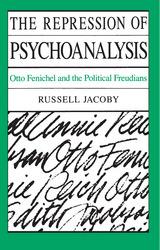

Iris Murdoch once suggested that to understand any philosopher's work we must ask what he or she is frightened of. To understand any psychoanalyst's work--both as a clinician and as a writer--we should ask what he or she loves, because psychoanalysis is about the unacceptable and about love, two things that we may prefer to keep apart, but that Freud found to be inextricable. If it is possible to talk about psychoanalysis as a scandal, without spuriously glamorizing it, then one way of doing it is simply to say that Freud discovered that love was compatible, though often furtively, with all that it was meant to exclude. There are, in other words--and most of literature is made up of these words--no experts on love. And love, whatever else it is, is terror.
In a manner characteristically engaging and challenging, charming and maddening, Adam Phillips teases out the complicity between desire and the forbidden, longing and dread. His book is a chronicle of that all-too-human terror, and of how expertise, in the form of psychoanalysis, addresses our fears--in essence, turns our terror into meaning.
It is terror, of course, that traditionally drives us into the arms of the experts. Phillips takes up those topics about which psychoanalysis claims expertise--childhood, sexuality, love, development, dreams, art, the unconscious, unhappiness--and explores what Freud's description of the unconscious does to the idea of expertise, in life and in psychoanalysis itself. If we are not, as Freud's ideas tell us, masters of our own houses, then what kind of claims can we make for ourselves? In what senses can we know what we are doing? These questions, so central to the human condition and to the state of psychoanalysis, resonate through this book as Phillips considers our notions of competence, of a professional self, of expertise in every realm of life from parenting to psychoanalysis. Terrors and Experts testifies to what makes psychoanalysis interesting, to that interest in psychoanalysis--which teaches us the meaning of our ignorance--that makes the terrors of life more bearable, even valuable.
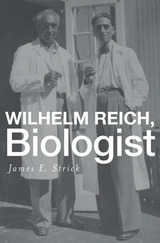
Psychoanalyst, political theorist, pioneer of body therapies, prophet of the sexual revolution—all fitting titles, but Wilhelm Reich has never been recognized as a serious laboratory scientist, despite his experimentation with bioelectricity and unicellular organisms. Wilhelm Reich, Biologist is an eye-opening reappraisal of one of twentieth-century science’s most controversial figures—perhaps the only writer whose scientific works were burned by both the Nazis and the U.S. government. Refuting allegations of “pseudoscience” that have long dogged Reich’s research, James Strick argues that Reich’s lab experiments in the mid-1930s represented the cutting edge of light microscopy and time-lapse micro-cinematography and deserve to be taken seriously as legitimate scientific contributions.
Trained in medicine and a student of Sigmund Freud, Reich took to the laboratory to determine if Freud’s concept of libido was quantitatively measurable. His electrophysiological experiments led to his “discovery” of microscopic vesicles (he called them “bions”), which Reich hypothesized were instrumental in originating life from nonliving matter. Studying Reich’s laboratory notes from recently opened archives, Strick presents a detailed account of the bion experiments, tracing how Reich eventually concluded he had discovered an unknown type of biological radiation he called “orgone.” The bion experiments were foundational to Reich’s theory of cancer and later investigations of orgone energy.
Reich’s experimental findings and interpretations were considered discredited, but not because of shoddy lab technique, as has often been claimed. Scientific opposition to Reich’s experiments, Strick contends, grew out of resistance to his unorthodox sexual theories and his Marxist political leanings.
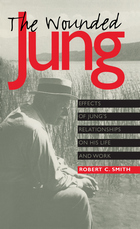
Smith begins by exploring Jung's formative and transformative life experience, including his relationships with a deeply troubled mother and despairing father, with Sigmund Freud, and with the various women in his life. The relationships to his parents, in particular, have been remarkably unexplored by scholars. Smith then shows how these experiences shaped Jung's thoughts and writing -including his reassessment of religion as inner process - as well as his fascination with gnosticism and alchemy; the attention Jung gives to psychology as myth and the realization of selfhood; and his reinterpretation of evil as a process to be integrated into the proper sphere of human existence.
Smith's findings are based on the unprecedented number of primary sources to which he had access, including archival research, his own interviews with many of Jung's intimates, and personal correspondence with Jung himself, as well as on the synthesis of a wide range of recent scholarship on Jung. The culmination of many years of scholarship and reflection, this book should be read by anyone interested in spiritual healing or the connection between psychology and religion.
READERS
Browse our collection.
PUBLISHERS
See BiblioVault's publisher services.
STUDENT SERVICES
Files for college accessibility offices.
UChicago Accessibility Resources
home | accessibility | search | about | contact us
BiblioVault ® 2001 - 2025
The University of Chicago Press




